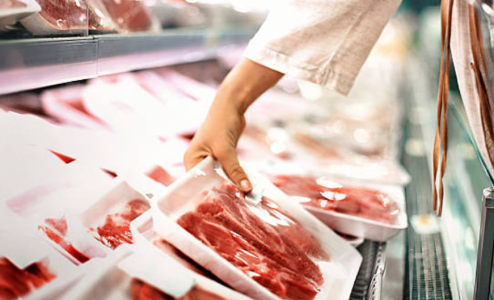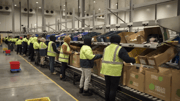Australia lifts import ban as parasite outbreak raises alarm
By
Gian T
- Replies 0
Australia has just made a major move in beef imports, lifting its long-standing biosecurity ban on US beef, including meat from cattle raised in Mexico and Canada but processed in the United States.
While this decision is being hailed as a win for trade relations, it raises eyebrows and concerns among Aussie farmers and consumers alike, especially as a parasite outbreak rages through southern Mexico.
Let’s break down what’s happening, why it matters, and what it could mean for your next Sunday roast.
The Albanese government insists the decision to lift the ban was based on science, not politics, following a decade-long review.
The original ban was implemented over twenty years ago after the mad cow disease scare.
While it was partially relaxed in 2019 for US-raised and slaughtered cattle, beef from animals raised in Canada or Mexico but processed in the US was still off the menu.
Now, with the ban fully lifted, US companies can apply for accreditation to export beef to Australia, provided they meet our famously rigid biosecurity standards.
The government says this will not compromise Australia’s world-leading biosecurity status, but not everyone is convinced.
As Australia opens its doors to more US beef, ranchers in southern Mexico are battling a terrifying outbreak of the New World screwworm fly, a flesh-eating parasite that burrows into animals, causing severe, sometimes fatal, wounds.
The US Department of Agriculture has sounded the alarm, warning that the parasite is spreading rapidly across Chiapas, a state bordering Guatemala and Central America.
The screwworm fly is no joke. No matter how small, any open wound can become a target for the fly to lay its eggs.
The resulting maggots eat into the flesh, causing pain, infection, and even death if left untreated. The outbreak has also affected cattle, sheep, pigs, cats, and dogs.
With the price of medicines skyrocketing, some Mexican ranchers have resorted to old-school home remedies, like dousing wounds with gasoline or lime, to try to coax out the worms.
Treatment is labour-intensive, requiring careful monitoring and multiple courses of medication. Meanwhile, the government’s response has been slow, with little support reaching those on the front lines.
Veterinarian Alfredo Chávez, who’s been treating infected animals in Chiapas, says he’s seen cases multiply in recent weeks.
'We’ve faced it alone,' he says, noting that while authorities encourage reporting, they haven’t provided much practical help.
There is hope on the horizon: Mexico, with US support, is building a plant in Chiapas to produce sterile screwworm flies, a proven method for controlling outbreaks.
The idea is that releasing sterile males into the wild will reduce the population over time.
But the plant won’t be ready until next year, leaving ranchers to battle the outbreak with limited resources for now.
Understandably, Australian farmers are nervous about the risk of importing beef from regions affected by such outbreaks.
Macka’s Angus director Robert Mackenzie said, 'I wouldn’t think that Mexico would have the best biosecurity, so why take that risk?'
Industry groups like Cattle Australia and The Nationals are calling for an independent scientific review of the decision to lift the ban.
'There is simply too much at stake when it comes to Australia’s world-leading biosecurity status not to get a second opinion,' said Cattle Australia CEO Will Evans.
The Department of Agriculture says any US company wanting to export beef to Australia must meet strict accreditation standards.
For its part, the US has recently improved its cattle tracing protocols, making tracking and responding to disease outbreaks easier.
Still, the presence of the screwworm in Mexico has already led the US to suspend Mexican cattle imports, fearing the parasite could spread north and cause economic havoc, something that happened decades ago in Texas.
Despite the political fanfare (with former US President Donald Trump boasting that the US will 'sell so much to Australia'), industry experts don’t expect a flood of US beef to hit our shelves.
Australia’s own beef industry is robust, and imported beef is likely to remain a niche product for now.
For most Aussies, the biggest concern is food safety. Australia’s biosecurity standards are among the strictest in the world, and any imported beef will be subject to rigorous checks.
However, the situation in Mexico is a stark reminder of how quickly biosecurity threats can emerge—and why vigilance is so important.
 With all this in mind, we want to hear from you! Are you comfortable buying beef imported from the US, knowing the current situation in Mexico? Do you trust Australia’s biosecurity measures to keep our food safe? Or do you prefer to stick with homegrown Aussie beef? Share your thoughts in the comments below.
With all this in mind, we want to hear from you! Are you comfortable buying beef imported from the US, knowing the current situation in Mexico? Do you trust Australia’s biosecurity measures to keep our food safe? Or do you prefer to stick with homegrown Aussie beef? Share your thoughts in the comments below.
Read more: What Was Hidden Inside 62,000kg of Thai Food That Landed This Woman in Jail?
While this decision is being hailed as a win for trade relations, it raises eyebrows and concerns among Aussie farmers and consumers alike, especially as a parasite outbreak rages through southern Mexico.
Let’s break down what’s happening, why it matters, and what it could mean for your next Sunday roast.
The Albanese government insists the decision to lift the ban was based on science, not politics, following a decade-long review.
The original ban was implemented over twenty years ago after the mad cow disease scare.
While it was partially relaxed in 2019 for US-raised and slaughtered cattle, beef from animals raised in Canada or Mexico but processed in the US was still off the menu.
Now, with the ban fully lifted, US companies can apply for accreditation to export beef to Australia, provided they meet our famously rigid biosecurity standards.
The government says this will not compromise Australia’s world-leading biosecurity status, but not everyone is convinced.
As Australia opens its doors to more US beef, ranchers in southern Mexico are battling a terrifying outbreak of the New World screwworm fly, a flesh-eating parasite that burrows into animals, causing severe, sometimes fatal, wounds.
The US Department of Agriculture has sounded the alarm, warning that the parasite is spreading rapidly across Chiapas, a state bordering Guatemala and Central America.
The screwworm fly is no joke. No matter how small, any open wound can become a target for the fly to lay its eggs.
The resulting maggots eat into the flesh, causing pain, infection, and even death if left untreated. The outbreak has also affected cattle, sheep, pigs, cats, and dogs.
With the price of medicines skyrocketing, some Mexican ranchers have resorted to old-school home remedies, like dousing wounds with gasoline or lime, to try to coax out the worms.
Treatment is labour-intensive, requiring careful monitoring and multiple courses of medication. Meanwhile, the government’s response has been slow, with little support reaching those on the front lines.
Veterinarian Alfredo Chávez, who’s been treating infected animals in Chiapas, says he’s seen cases multiply in recent weeks.
'We’ve faced it alone,' he says, noting that while authorities encourage reporting, they haven’t provided much practical help.
There is hope on the horizon: Mexico, with US support, is building a plant in Chiapas to produce sterile screwworm flies, a proven method for controlling outbreaks.
The idea is that releasing sterile males into the wild will reduce the population over time.
But the plant won’t be ready until next year, leaving ranchers to battle the outbreak with limited resources for now.
Understandably, Australian farmers are nervous about the risk of importing beef from regions affected by such outbreaks.
Macka’s Angus director Robert Mackenzie said, 'I wouldn’t think that Mexico would have the best biosecurity, so why take that risk?'
Industry groups like Cattle Australia and The Nationals are calling for an independent scientific review of the decision to lift the ban.
'There is simply too much at stake when it comes to Australia’s world-leading biosecurity status not to get a second opinion,' said Cattle Australia CEO Will Evans.
The Department of Agriculture says any US company wanting to export beef to Australia must meet strict accreditation standards.
For its part, the US has recently improved its cattle tracing protocols, making tracking and responding to disease outbreaks easier.
Despite the political fanfare (with former US President Donald Trump boasting that the US will 'sell so much to Australia'), industry experts don’t expect a flood of US beef to hit our shelves.
Australia’s own beef industry is robust, and imported beef is likely to remain a niche product for now.
For most Aussies, the biggest concern is food safety. Australia’s biosecurity standards are among the strictest in the world, and any imported beef will be subject to rigorous checks.
However, the situation in Mexico is a stark reminder of how quickly biosecurity threats can emerge—and why vigilance is so important.
Key Takeaways
- Australia has lifted its biosecurity ban on US beef, including beef from cattle raised in Mexico and Canada but slaughtered in the US, despite concerns from local farmers about disease risks.
- At the same time, Mexican cattle ranchers are battling a major outbreak of the flesh-eating screwworm fly, which is causing serious damage to livestock and driving up treatment costs.
- The US has barred Mexican cattle imports due to the parasite outbreak, and Mexico is building a sterile fly plant (with US support) to try to control the spread, but help for ranchers has been limited so far.
- The lifting of Australia's ban has sparked calls for an independent review of the decision, with many in the beef industry questioning whether it puts Australia’s strong biosecurity standards at risk.
Read more: What Was Hidden Inside 62,000kg of Thai Food That Landed This Woman in Jail?








